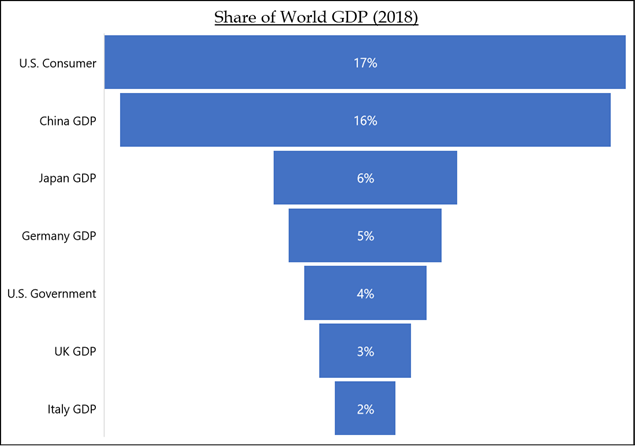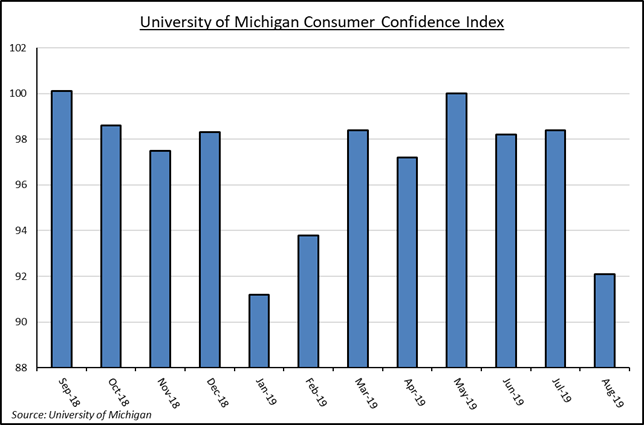- August 19, 2019
- Blog , The Portfolio Strategist - Terry Gardner
C.J. Lawrence Weekly – The U.S. Consumer Remains Global Growth Engine
The equity markets breathed a sigh of relief on Friday. Most of the economic data releases were positive, treasury bond yields rose, and stocks rallied. The S&P 500 lost ground for the week but improved 1.44% on Friday alone, with economically sensitive sectors like Industrials, Technology and Financials leading the charge. Risks that ailed stocks during the past few weeks continued to persist, but a positive July U.S. retail sales report boosted confidence that the U.S. consumer remains healthy and continues to do the heavy lifting for the global economy. U.S. retail sales rose a healthy 0.7% last month after a 0.3% gain in June, the Commerce Department said Thursday. Online retailers, grocery stores, clothing retailers and electronics and appliance stores all reported strong gains.

In March of this year we penned a weekly note titled “The U.S. Consumer is the Global Economy’s Atlas” which highlighted the fact that even though the global manufacturing economy was slowing, the U.S. consumer’s voracious appetite for goods and services was helping to buoy economic activity. This dynamic has only strengthened. Despite growing economic uncertainty, and a further weakening of the global manufacturing economy, the U.S. consumer has held the line, and has done so without leveraging household balance sheets. In fact, the U.S. personal savings rate edged up to 8.1% in June to a three-year high.

Confidence among most U.S. households remains high despite the recent equity market volatility and negative trade headlines. Elevated home prices, low unemployment, and marginally higher wages at home may be offsetting global macro concerns. In fact, the Conference Board’s reading of U.S. Consumer Confidence meaningfully outstripped consensus forecasts at the end of July with a reading of 135.7 versus consensus of 125. But a recent report from the University of Michigan painted a less optimistic picture. Their final preliminary consumer confidence index reading dropped to 92.1 from 98.4 in the period, well below 97.5. The various confidence readings bear watching. High confidence among U.S. consumers is a critical support to what now appears to be a fragile U.S. economic expansion.
Terry Gardner Jr. is Portfolio Strategist and Investment Advisor at C.J. Lawrence. Contact him at tgardner@cjlawrence.com or by telephone at 212-888-6403.
